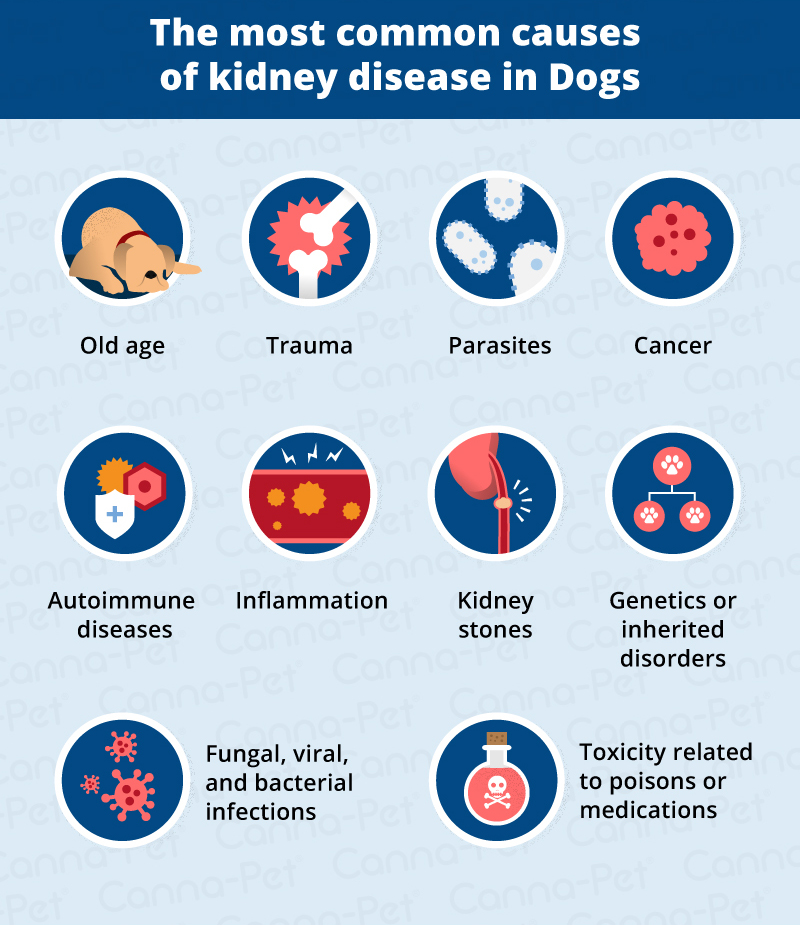Excellent News On Picking Petz Park
Excellent News On Picking Petz Park
Blog Article
Probiotics Can Aid Dogs And Cats With Allergies.
Probiotics play a significant function in the treatment and relief of skin allergies in dogs and cats. Probiotics are beneficial and help to maintain the microbiome of the gut. This is in turn beneficial to the skin and immune system. Probiotics are beneficial for pets suffering from allergies:
Immune System Regulation
Balanced Immune Response:
Function: Probiotics aid in regulating the immune system by encouraging the growth of beneficial bacteria and neutralizing harmful bacteria in the intestine.
Benefits: A healthy immune system that's balanced can reduce hypersensitivity, which can cause allergies. This reduces the severity and frequentity of allergic reactions.
Inflammation Reduction
Anti-inflammatory Effects:
Function Probiotics: Certain strains are able to produce anti-inflammatory substances and also regulate inflammatory responses in the body.
Benefits - By reducing the systemic swelling, probiotics can help to decrease itching, inflammation, as well as other symptoms that are associated with allergic reactions.
Gut-Skin Axis
Enhance your gut health:
Function The gut-skin connection refers to the relationship between skin and gut health. Probiotics can improve the function of the gut barrier and overall digestion health.
Benefits of having a healthy stomach: It can help to keep out the leakage of toxins or allergens in the bloodstream. This can trigger a skin reactions. This can lead to a reduction in skin allergy symptoms.
Strengthening Skin Barrier
Enhanced Skin Barrier Function:
Function: Probiotics may affect the creation of ceramides as well as other lipids which are vital to maintain a healthy skin barrier.
Benefits A more robust skin barrier helps protect against environmental allergens. This reduces skin infections and allergic reaction.
Allergy Symptom Management
Pain Relief:
Function: Probiotics can be used to ease symptoms through the modulation of release of histamines as well as other chemicals that are involved in allergic reactions.
Benefits of this product It reduces itching and discomfort for pets suffering from allergies.
Enhanced Microbial Diversity
More diverse microbial diversity:
Function: Probiotics enhance the diversity of the gut microbiome which is essential for a balanced immune response.
Benefits A diverse microbiome helps overall health including the health of your skin. It does this by stopping harmful bacteria from growing and contributing to allergies.
Particular Probiotic strains
Lactobacillus and Bifidobacterium They are two commonly used probiotic strains which have been found to be effective in managing skin allergies in pets.
LactobacillusrhamnosusGG has been praised for its role in promoting gut health and reducing allergies.
Bifidobacterium Aegypti: It assists to reduce inflammation and improve the immune system.
Use and considerations
Dosage and Administration: The right dose of probiotics is based on the pet's weight, size and health requirements. It is essential to follow the veterinarian's recommendations or the directions on the label.
Formulations Probiotics are available in various forms for dogs like powders, capsules, and chews. It is recommended to choose a high quality pet-specific product to ensure your pet's safety.
Monitoring and Side Effects. Probiotics are generally safe for your pet, but it is important to monitor them to see if they have any negative reactions. To avoid any adverse effects, start at an initial dose and gradually increase the dosage.
We also have a conclusion.
Probiotics help dogs and cat owners control their allergies to skin by controlling immune function and reducing irritation. They also help improve the barrier to skin and enhancing gut health. Regular use of probiotics could reduce allergic symptoms in pets, promote healthier skin and enhance their quality of living. Read the recommended get the facts for natural dog probiotics for more examples including pet joint supplements, natural pet supplements australia, pet supplements for pets with digestive problems, pet casein protein supplements, pet lactation supplements, cat supplements, pet omega-3 supplements, cat supplements and more.
Astragalus, A Natural Remedy For Kidney Failure In Dogs And Cats.
Astragalus is an herb which has been used for its use in Chinese traditional medicine for centuries. Its immunomodulatory, anti-inflammatory, as well as antioxidant properties have been proven to aid in the treatment of kidney disease in dogs and cats. Astragalus assists in the following ways:
Anti-inflammatory properties
Reduce Inflammation
Astragalus has anti-inflammatory compounds like saponins.
Benefits. Reduced inflammation of kidneys could help alleviate the symptoms that are associated with kidney damage.
Antioxidant Effects
Reduced Oxidative Strain in Reduction:
Astragalus is rich in antioxidants that neutralize free radicals that cause cell damage.
Astragalus benefits include by reducing stress-related oxidative, it helps protect the kidney cells from injury. This helps improve kidney health and slows down the progression of diseases.
Immunomodulation
Immune System Support:
Astragalus modulates immunity, increasing the ability to fight infections, and reducing autoimmunity.
Benefits An immune system that is healthy assists in preventing infections, and helps to reduce autoimmune reactions that can cause kidney damage.
Improve Kidney Function
Enhancement Glomerular Filtration (GFR).
Astragalus has been shown to enhance kidney function. It achieves this through increasing the glomerular filtration rate.
Benefits: A better filtration process will allow kidneys to remove waste with greater efficiency, thus reducing the symptoms of kidney failure. Additionally, it can improve overall health.
Anti-fibrotic effects
Prevention of Kidney Fibrosis:
Function: Astragalus has been shown to possess anti-fibrotic properties which prevent the development of scar tissue in the kidneys.
Benefits: Fibrosis reduction helps maintain the function of renal tissue, that is essential for maintaining kidney functions in pets with chronic kidney disease.
Cardiovascular Support
Support for Cardiovascular Health
Astragalus can have a positive effect on the health of your cardiovascular system. This is due to the fact that it assists in maintaining the heart's functions and blood pressure.
Benefits: A better cardiovascular health can reduce the stress on kidneys and boost overall health. This is important when your pet suffers from kidney problems.
Diuretic Effects
Urine flow:
Function: Astragalus may have mild diuretic effects, helping to boost the flow of urine and encourage the excreta of waste materials.
Benefits: An increased urine flow may help maintain the body's fluid balance and reduce toxic build-up. This can support kidney health.
Use and considerations
Dosage and Administration: The correct dosage of Astragalus is determined by the pet's size, weight, and specific health needs. Consultation with your vet is essential, as they can advise you on the dose and type of Astragalus that's best for your pet (e.g. capsules or tinctures, powder).
Quality and Source For the safety of your pet, only use top-quality Astragalus products that have been standardized. Specific products for pets are recommended.
Monitoring and Side Effects Although Astragalus is generally safe for pets, some may experience gastrointestinal upset. Beginning with a lower dosage and gradually increasing it could reduce the risk of side effects. A regular check-up with a veterinarian is crucial to observe your pet's reaction to the supplement and adjust the dosage, if needed.
Conclusion
Astragalus can be beneficial in managing kidney failure among dogs and cats. Its antiinflammatory, antioxidative immune-modulatory, anti-fibrotic and immunomodulatory effects can help improve kidney function and health. Astragalus used under the direction of a veterinarian may slow the progression of kidney disease and improve quality of living in pets suffering from kidney failure. Read the top related site for more tips including pet kidney supplements, pet probiotics australia, pet supplements for pets with fear of anesthesia, pet milk supplements, pet prebiotics australia, pet colostrum supplements, pet supplements for pets with fear of tv and radio, pet marshmallow supplements and more.
Apple Cider Vinegar Can Be Used To Treat Yeast Infections In Dogs And Cats.
Apple cider vinegar (ACV) is often recommended as a natural cure for yeast infections in cats and dogs. While there is anecdotal evidence and a few studies suggesting its potential benefits but it's crucial to use ACV carefully and with the guidance of a veterinarian due to its acidic character and possible side adverse effects. ACV aids in the treatment of yeast infections.
Antifungal Properties
Acidic Environment
ACV is acidic and has an average pH of 2.5 to 3. This acidic atmosphere can make yeast difficult to develop.
Benefits: Applying ACV directly to your pet or adding it to their bath water can in reducing the growth of yeast on their skin.
Skin pH Regulation
Balancing Skin pH:
ACV helps to regulate the pH of the skin, creating a healthy barrier to skin and inhibiting yeast growth.
Benefits: Keeping an appropriate pH balance in your skin can prevent yeast infections and help improve the health of your skin.
Anti-inflammatory effects
Reduction of Inflammation
ACV is a mild anti-inflammatory ingredient.
Benefits: Reduce inflammation to alleviate symptoms such as itching, redness and discomfort that can be caused by yeast infections.
Support for Digestive Health
Internal Use
ACV may promote digestive health and assist in balancing the gut microbiome when consumed.
Benefits: A healthy gut can reduce the growth of yeast by boosting the your overall immune system and microbial balance.
Use and Considerations
Topical application: dilute the ACV with water (1 part ACV and 1-2 parts of water is common) and spray or rinse it on affected skin areas or ear canals. Avoid direct application to the skin, or on open wounds.
Internal Use: If considering an internal use, make sure to consult with a veterinarian first. ACV is best given in very small doses and highly diluted (1 tablespoon to 1 teaspoon per cup of liquid) to prevent any stomach discomfort.
Monitoring: Look for signs of allergic reactions or irritation while using ACV topically. Refrain from using ACV if adverse reactions develop.
Consultation with a Veterinarian: Prior to using ACV for treating yeast illnesses in animals, it's essential to consult a veterinarian. They can give you advice on the proper dose and methods of application for your pet and the possible risks.
The final sentence of the article is:
Although apple cider may provide certain benefits when it comes to managing yeast infections in dogs as well as cats however, use of this vinegar should be under veterinarian supervision and with caution. ACV has mild anti-inflammatory properties. Its acidic nature can create an unfavourable environment that encourages yeast growth. A proper dilution and cautious application are essential to avoid irritation or negative effects. ACV treatment is safe in the presence of veterinary guidance. Have a look at the best she said about best vitamins for dogs for more info including pet urinary tract supplements, holistic pet supplements, pet kidney supplements, pet supplements for pets with fear of tv and radio, pet supplements for pets with compulsive behaviors, natural dog supplements, pet allergy relief, pet supplements for rehomed pets and more.